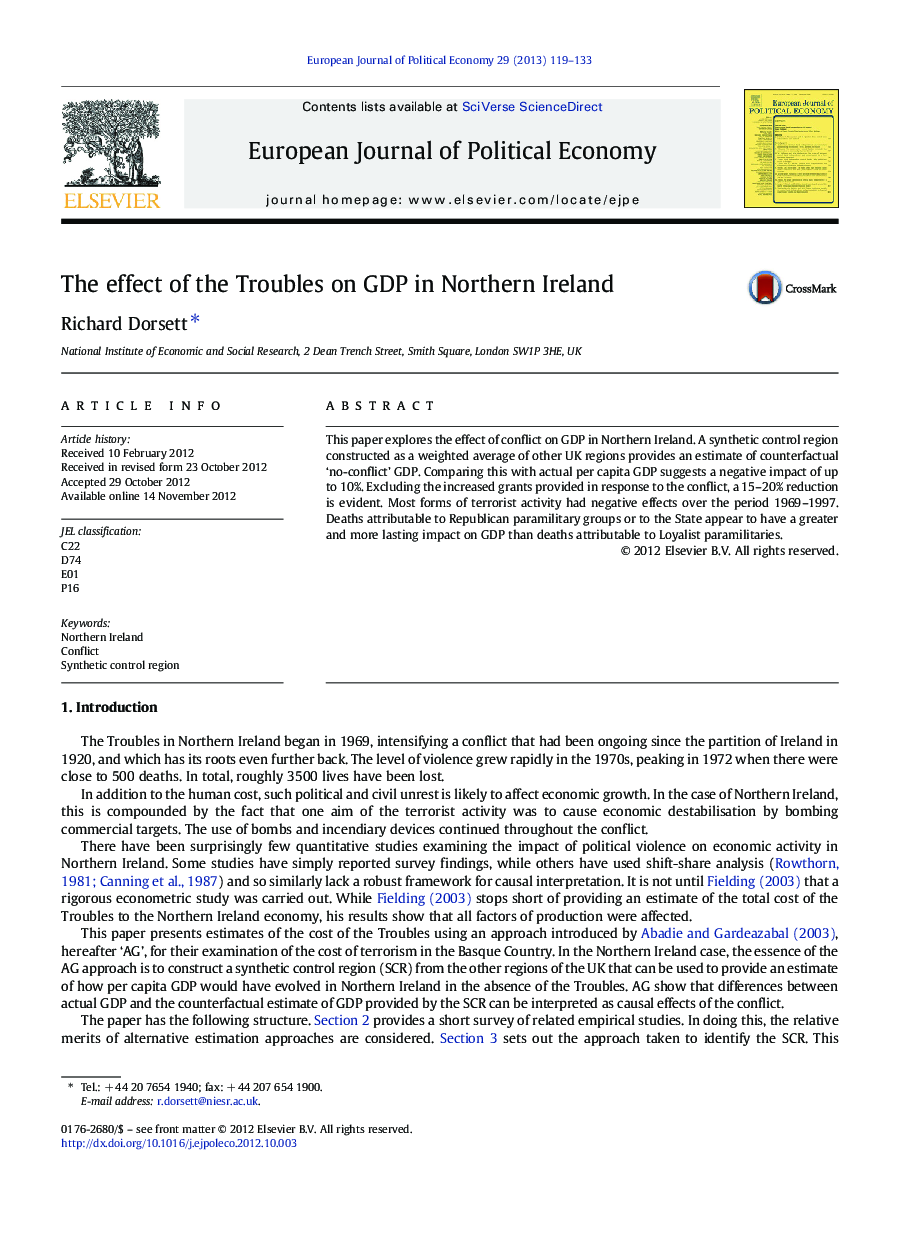| Article ID | Journal | Published Year | Pages | File Type |
|---|---|---|---|---|
| 5068197 | European Journal of Political Economy | 2013 | 15 Pages |
This paper explores the effect of conflict on GDP in Northern Ireland. A synthetic control region constructed as a weighted average of other UK regions provides an estimate of counterfactual 'no-conflict' GDP. Comparing this with actual per capita GDP suggests a negative impact of up to 10%. Excluding the increased grants provided in response to the conflict, a 15-20% reduction is evident. Most forms of terrorist activity had negative effects over the period 1969-1997. Deaths attributable to Republican paramilitary groups or to the State appear to have a greater and more lasting impact on GDP than deaths attributable to Loyalist paramilitaries.
⺠We examine the effect of conflict on GDP in Northern Ireland. ⺠Using a synthetic control region, we estimate a reduction of up to 10%. ⺠The impact on GDP excluding grant increases is larger, at 15-20%. ⺠Most measures of violence had effects lasting a number of years. ⺠Republican and State killings appeared to have more impact than Loyalist killings.
